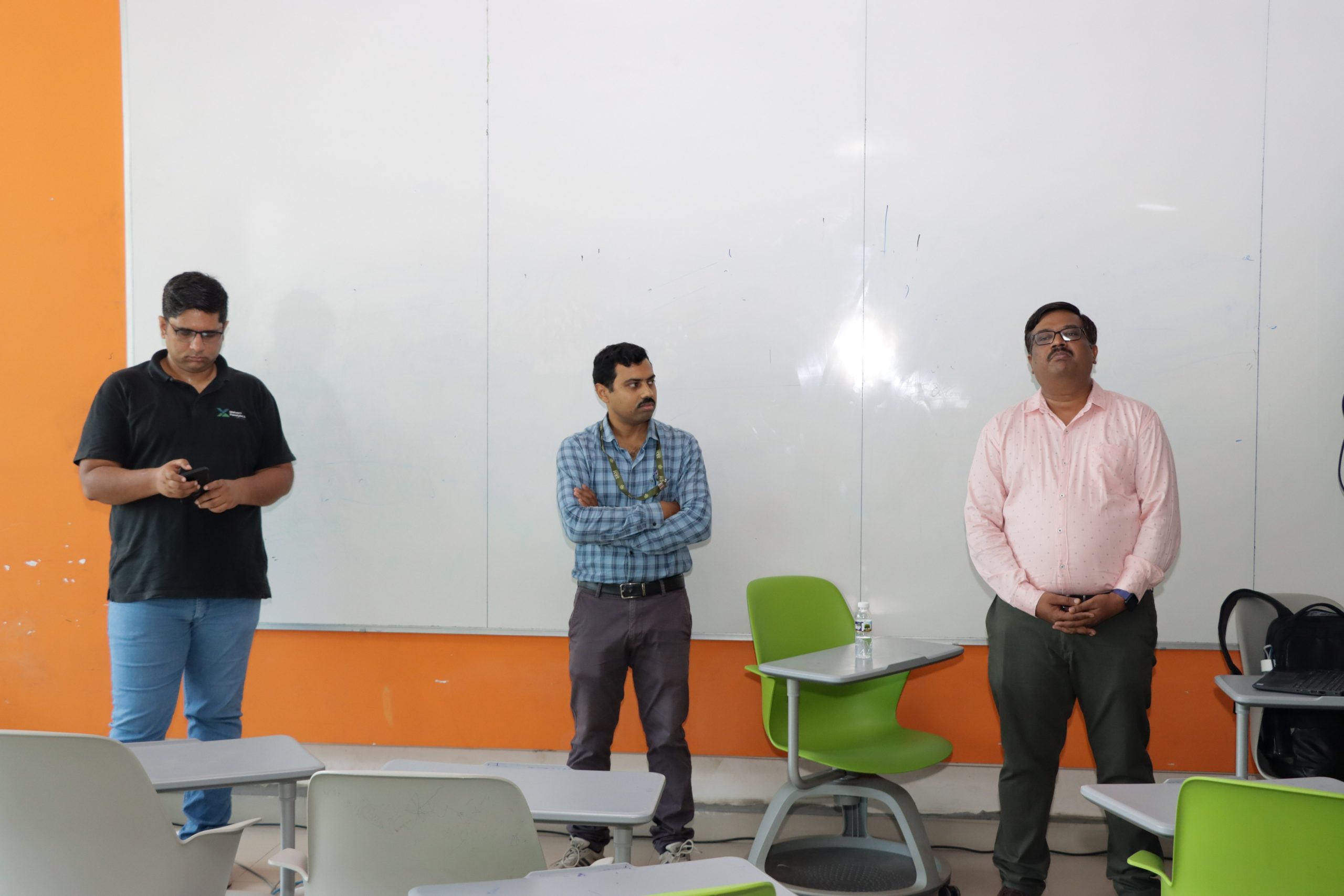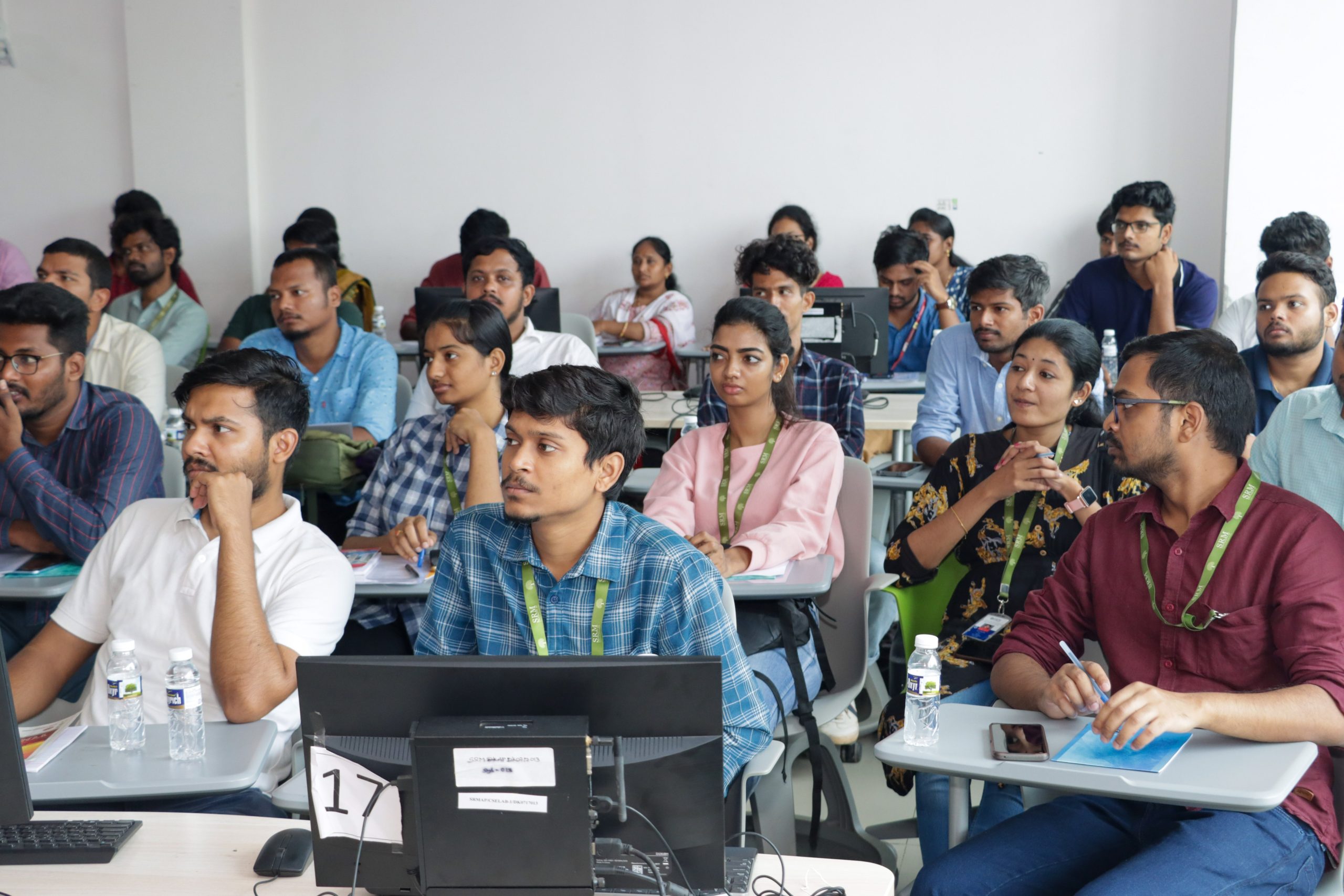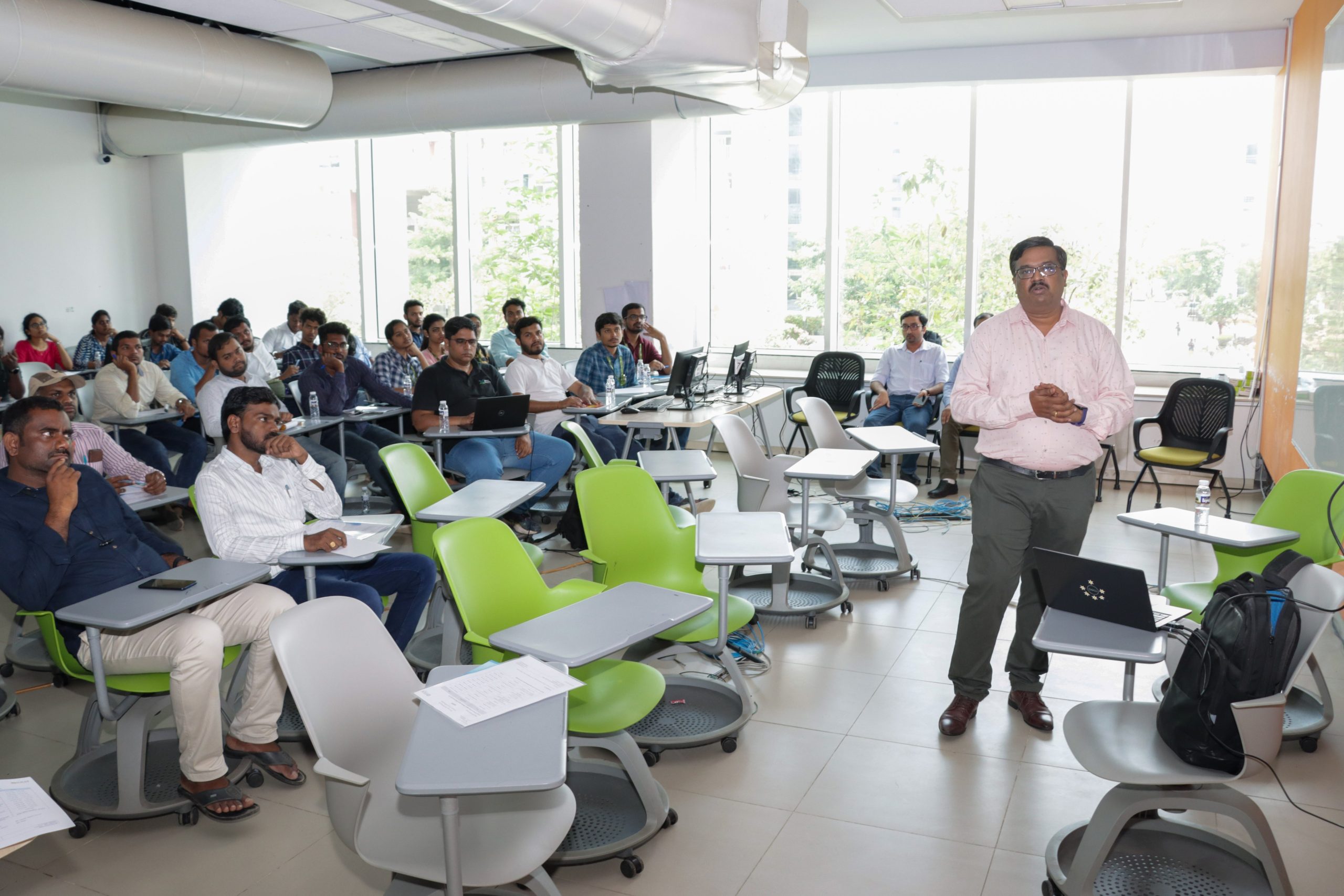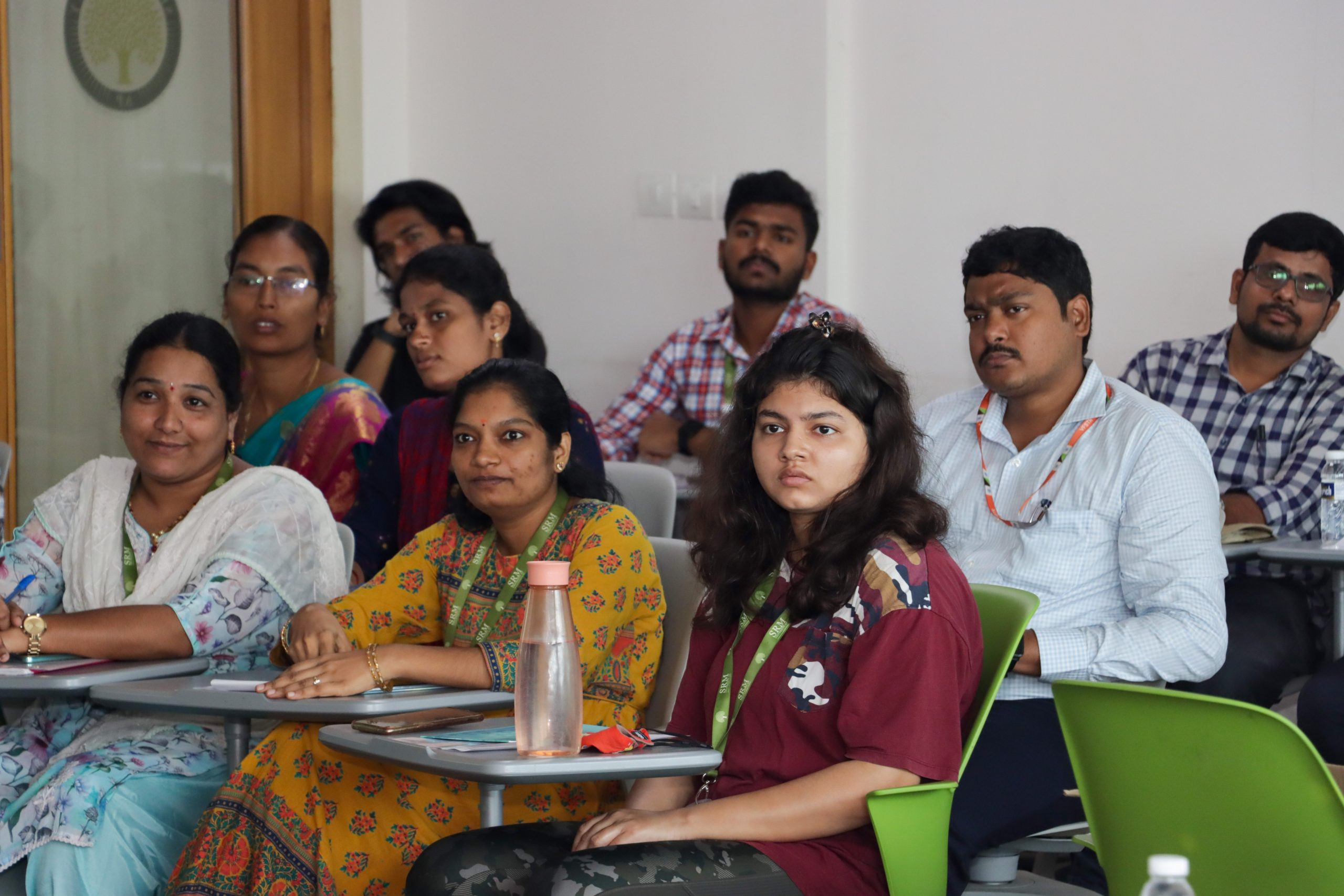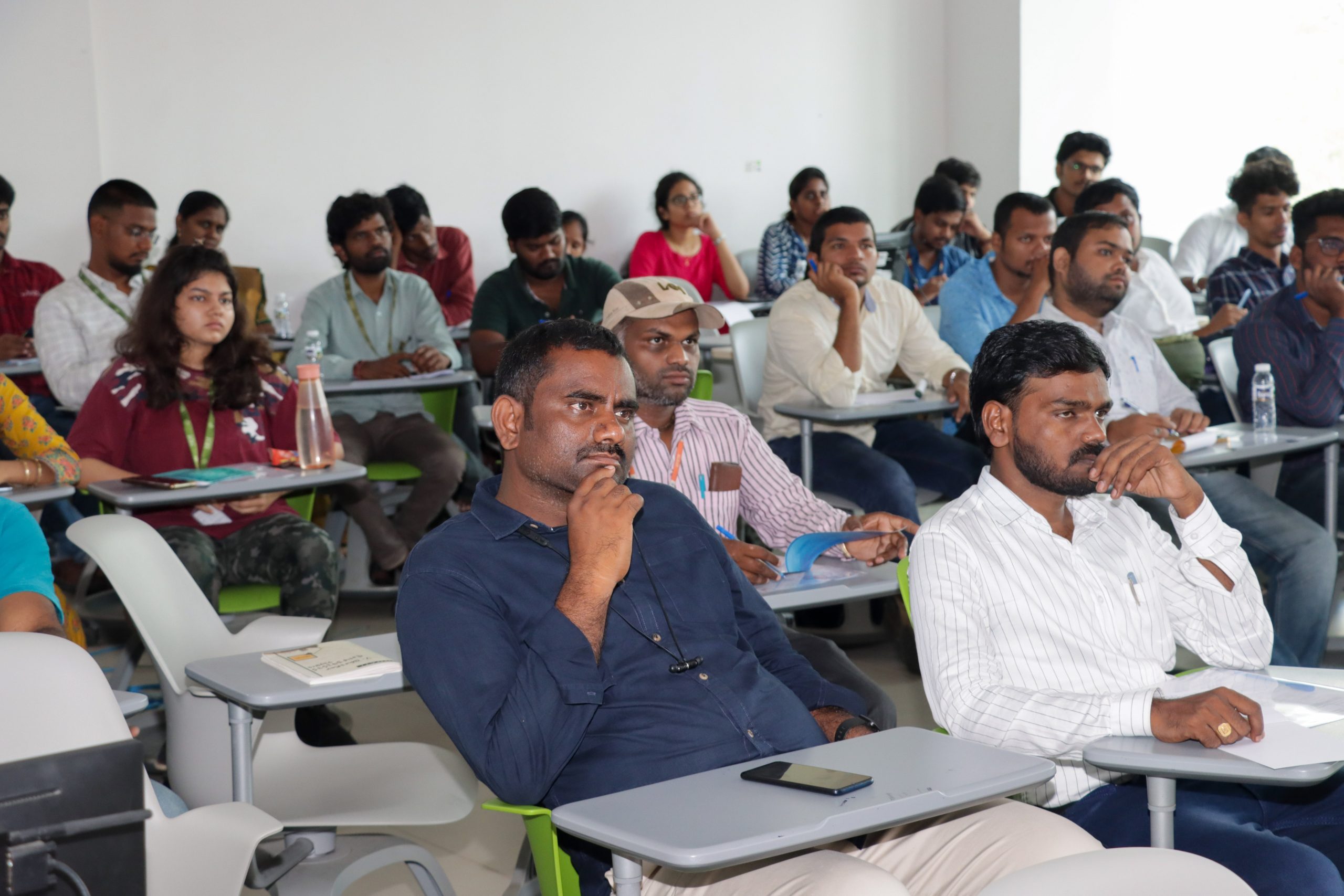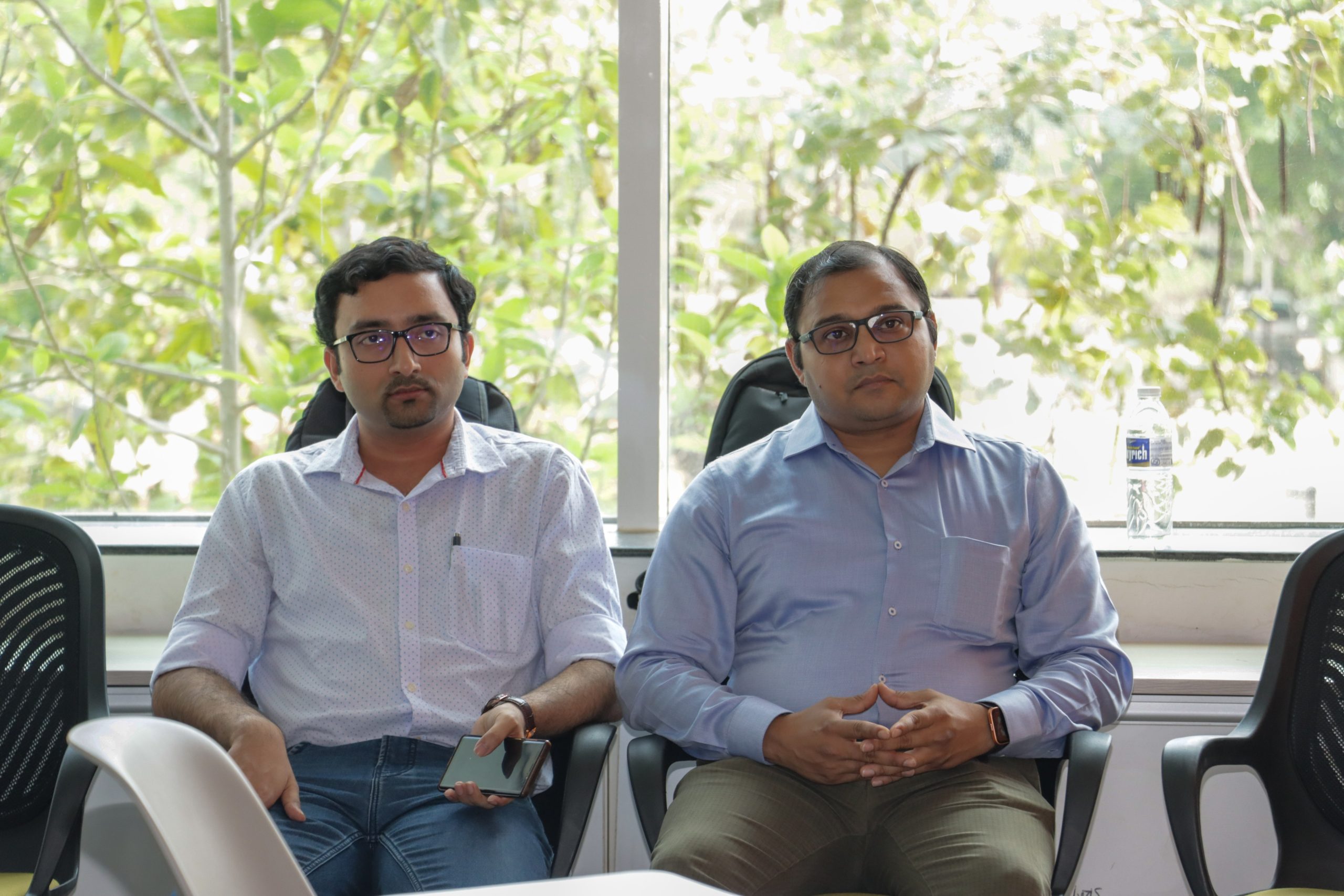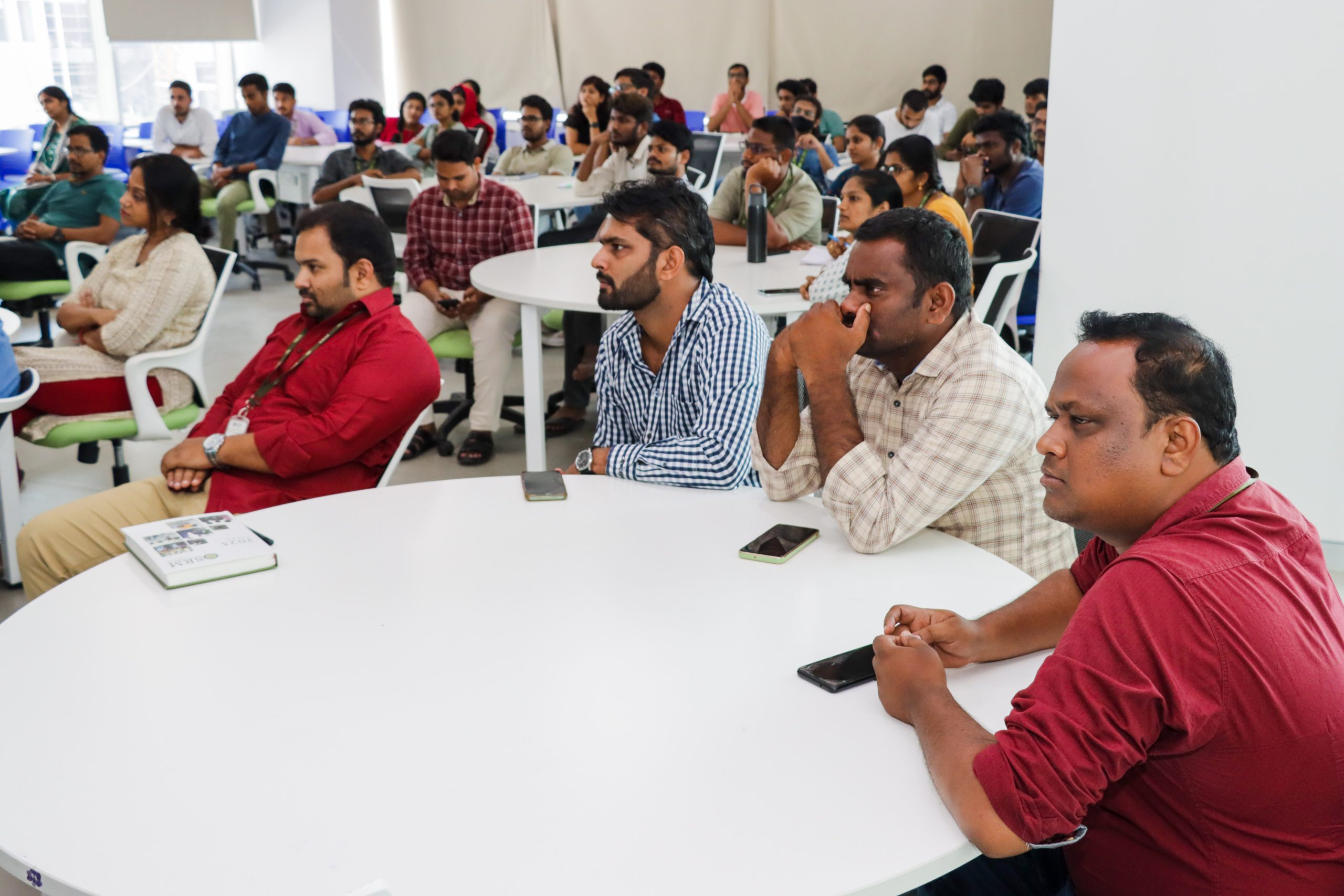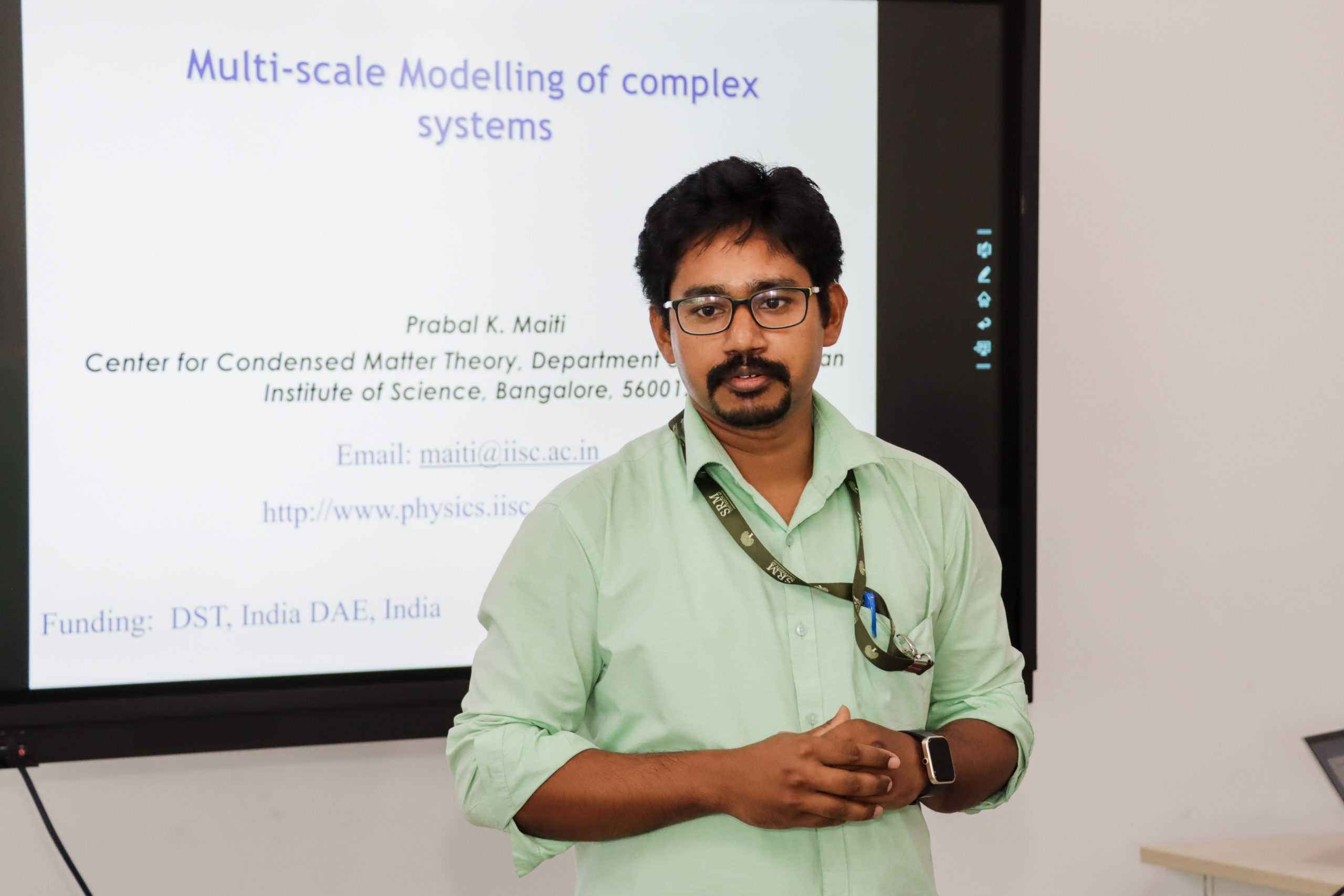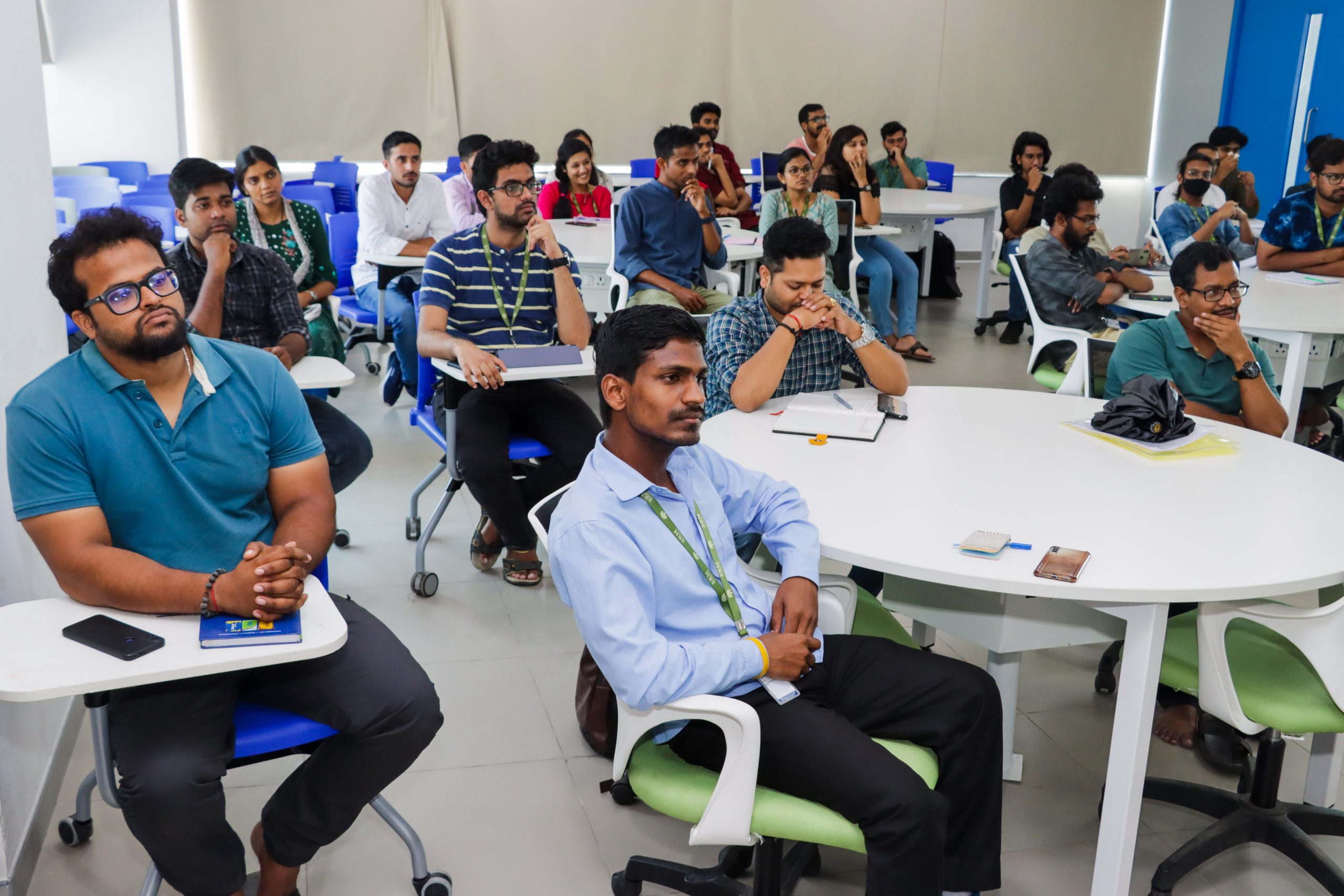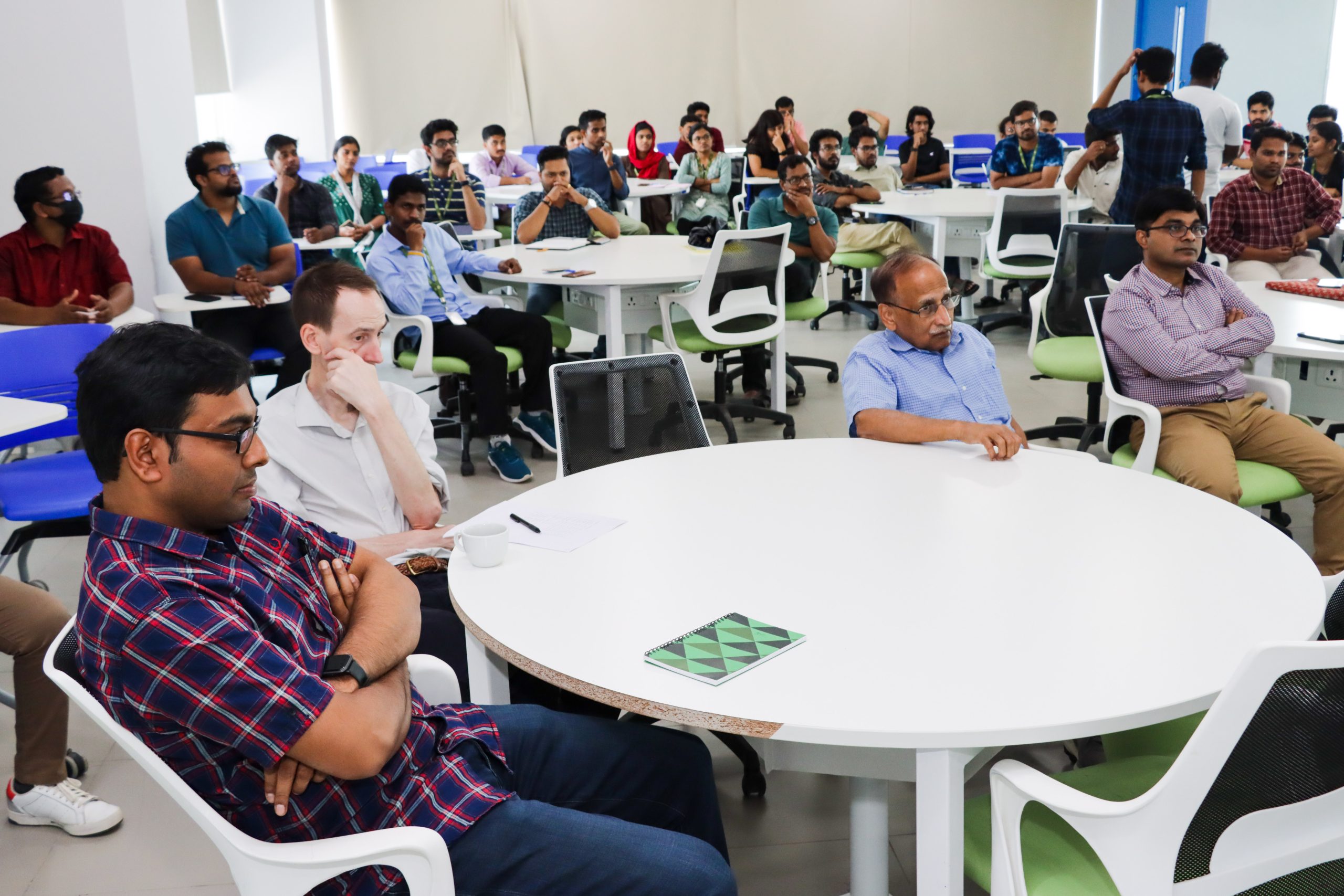One-Day Workshop on Powder X-ray Diffraction
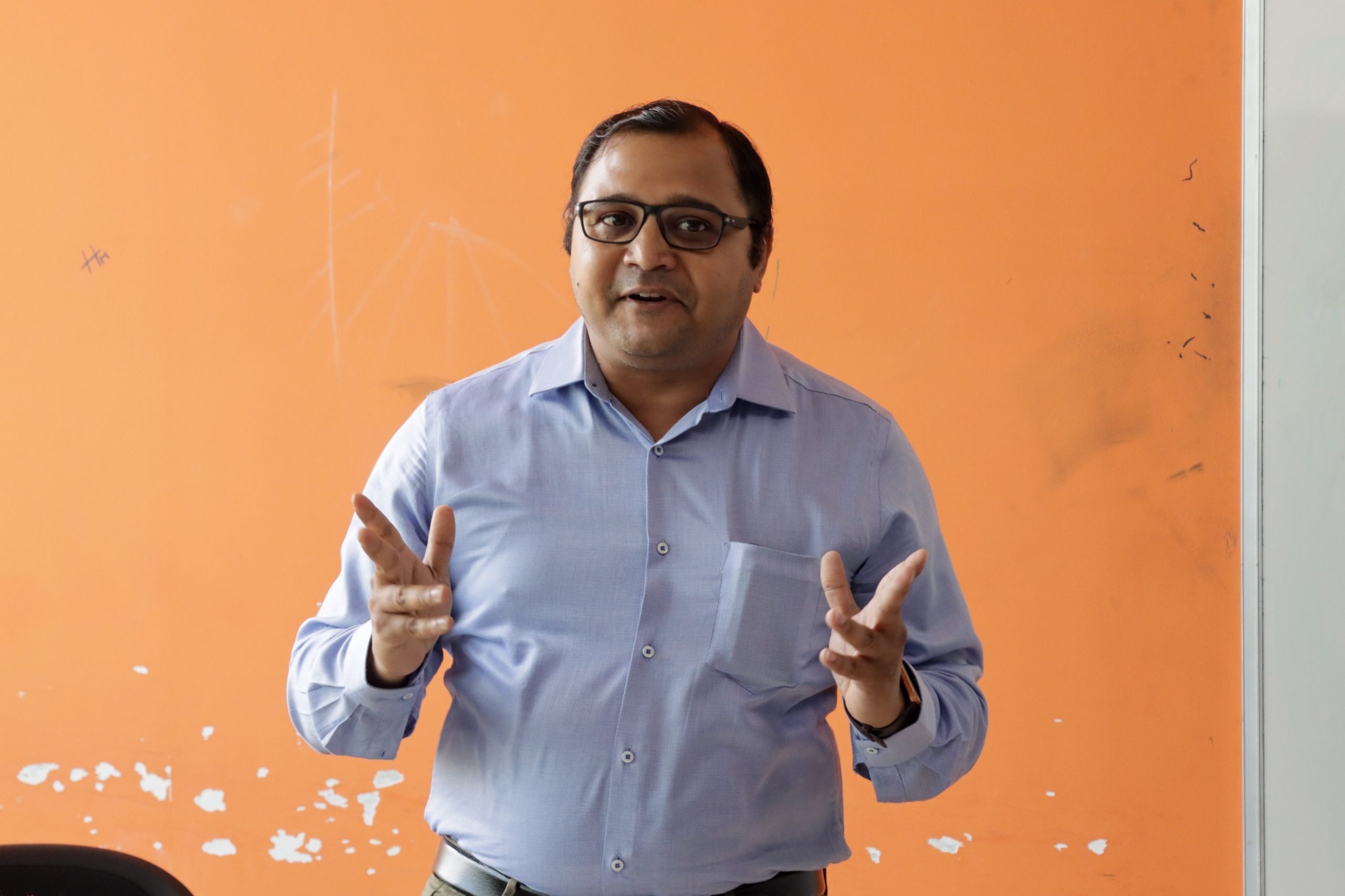 A One-Day Workshop on Powder X-ray Diffraction was conducted on April 28, 2023, by the Department of Physics in association with Malvern Panalytical, a division of Spectris Technologies. The workshop was intended to train users on the foundation of the X-ray diffraction technique in solids, the equipment’s hardware, data collection and analysis by software and advanced applications on thin-film and battery measurements.
A One-Day Workshop on Powder X-ray Diffraction was conducted on April 28, 2023, by the Department of Physics in association with Malvern Panalytical, a division of Spectris Technologies. The workshop was intended to train users on the foundation of the X-ray diffraction technique in solids, the equipment’s hardware, data collection and analysis by software and advanced applications on thin-film and battery measurements.
More than 60 participants attended the workshop from eight different institutes, including SRM University-AP, VIT-AP, KL University, Vignan’s Foundation for Science, Technology & Research, PB Siddhartha College, VR Siddhartha Engineering College, Raghu Institute of Technology – Visakhapatnam and NIT Andhra Pradesh. Four members from the Panalytical team visited, and the experts, Dr Mangesh Mahajan and Dr Sandeep Nagar, presented technical presentations on the topics.
Advanced features of the HighScore Plus software application and in-situ Powder X-ray diffraction measurement on battery charge-discharge were vital highlights. The external members interacted with participants during the technical sessions and during X-ray diffraction laboratory demonstrations. Participants were awarded a certificate by the varsity and Malvern Panalytical.
Dr Pranab Mandal, Head of the Department of Physics and Mr Soumik Mahapatra from Panalytical coordinated the event. The workshop witnessed active participation from research scholars and faculty from the Department of Physics. The Department plans to conduct more events on advanced research techniques and hands-on training for young researchers.
- Published in Departmental News, News, Physics News
Two-Dimensional Transition Metal Oxide Layers and A method for Their Synthesis
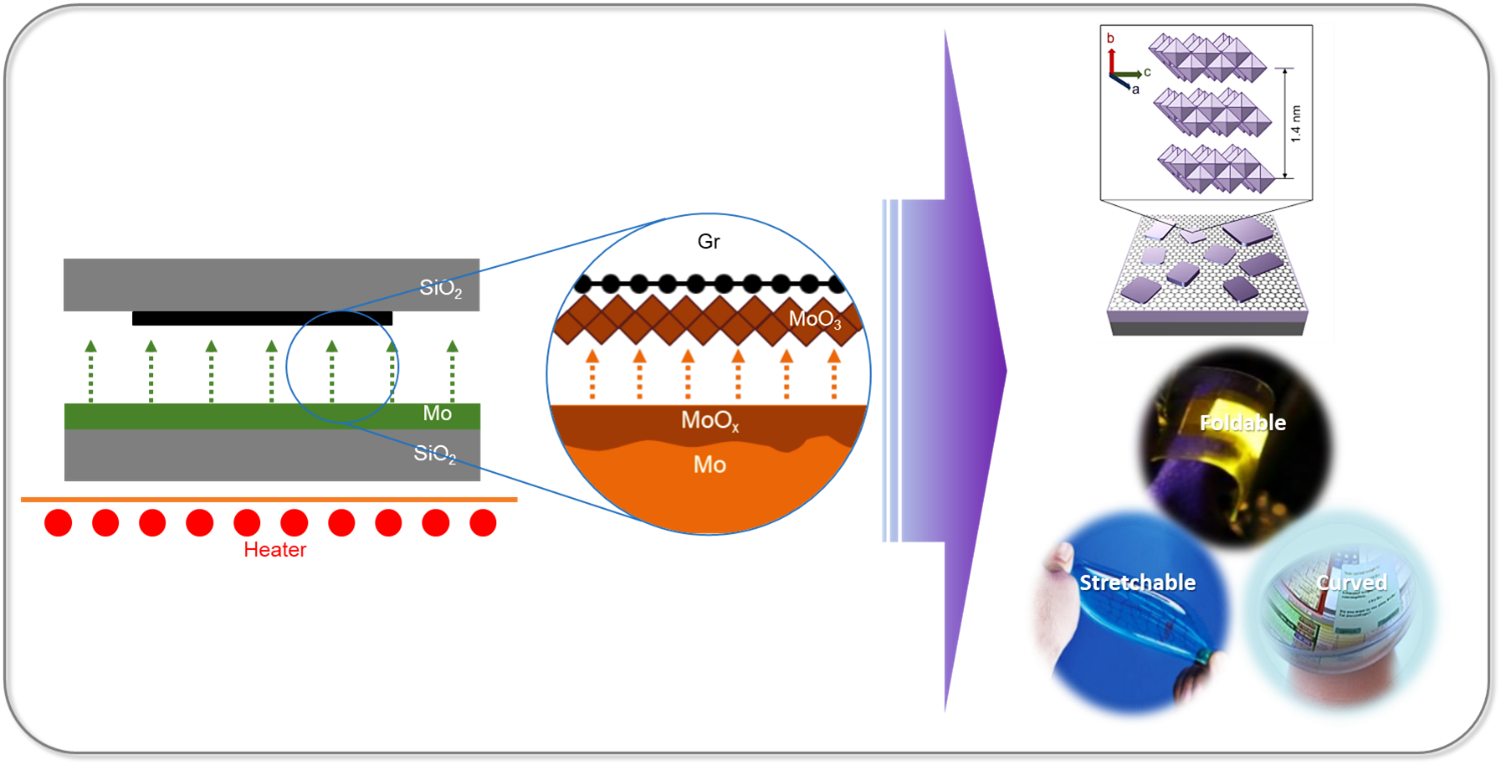 Researchers at the Department of Physics have successfully developed large-area ultra-thin 2D transition metal oxide (TMO) layers using a cost-effective and straightforward method through proximity evaporation under ambient conditions. Associate Professor Dr Jatis Kumar Dash and his students Shaik Md. Abzal, Kurapati Kalyan, and Sai Lakshmi Janga have secured a patent for their research in Two-Dimensional Transition Metal Oxide Layers and A method for their Synthesis (application no: 202241005220). They have integrated the 2D TMO layers with various other 2D materials to create nano-electronic devices. Their work demonstrates the immense potential of ultra-thin TMOs in 2D-material-based flexible electronics.
Researchers at the Department of Physics have successfully developed large-area ultra-thin 2D transition metal oxide (TMO) layers using a cost-effective and straightforward method through proximity evaporation under ambient conditions. Associate Professor Dr Jatis Kumar Dash and his students Shaik Md. Abzal, Kurapati Kalyan, and Sai Lakshmi Janga have secured a patent for their research in Two-Dimensional Transition Metal Oxide Layers and A method for their Synthesis (application no: 202241005220). They have integrated the 2D TMO layers with various other 2D materials to create nano-electronic devices. Their work demonstrates the immense potential of ultra-thin TMOs in 2D-material-based flexible electronics.
Patent Background
The two-dimensional (2D) ultrathin hetero-stacked layers show unusual physiochemical properties when reduced to a few atoms in thickness. These 2D heterostructures offer significant benefits for next-generation devices. Firstly, their atomically thin 2D nanosheets provide a larger surface area due to the complete exposure of surface atoms. Secondly, edge sites in 2D nanosheets are chemically more reactive than their basal planes, and open gaps allow for the intercalation of electrolyte ions. In addition, the high mechanical strength and flexibility at atomic dimensions make them suitable for use in next-generation wearable electronics. However, growing and stacking 2D materials is challenging, and existing growth tools are complex and costly.
Future Prospects
2D materials are critical for making flexible, wearable, foldable and transparent self-powered smart electronic devices. The next generation smart electronic devices will be
made of 2D materials heterostructures which will need less operating power, fewer materials consumption and will have ultimate scalability.
- Published in Departmental News, News, Physics News, Research News
A Discourse on Multiscale Modelling of Complex Systems
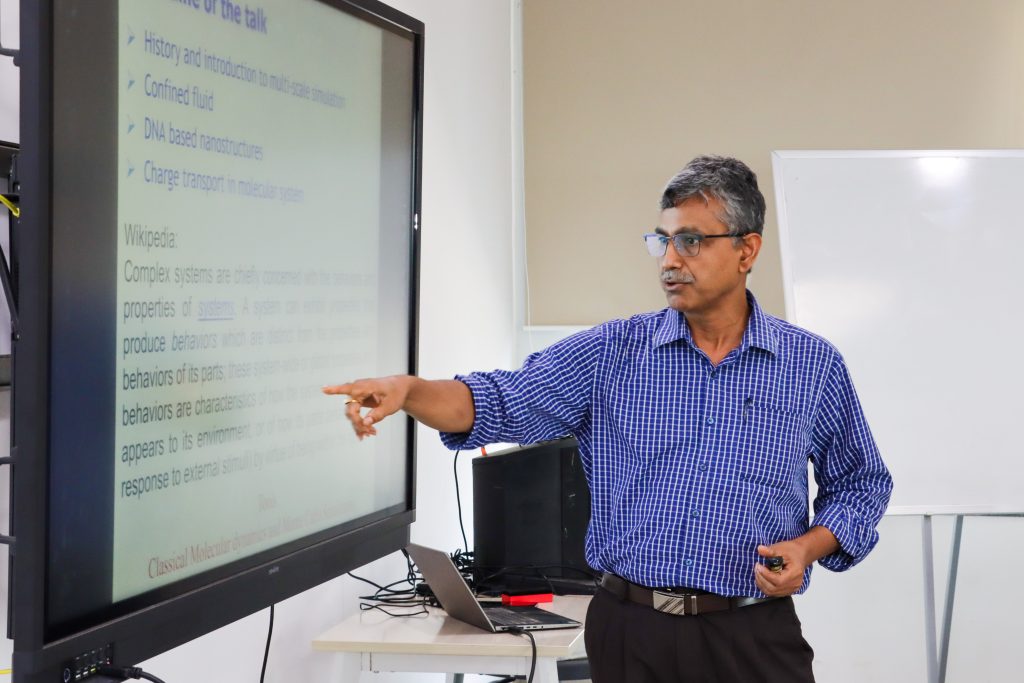
The Department of Physics, SRM University–AP organised the 8th lecture of the “Eminent Guest Lecture Series: An Odyssey of Physics” on May 10, 2023. Prof. Prabal K Maiti from the Department of Physics, Indian Institute of Science (IISc) Bangalore visited the university campus and delivered a talk on “Multiscale Modelling of Complex Systems”. The seminar was held at colloquium level to motivate and encourage young undergraduates and graduates.
More than 60 participants attended the seminar across the disciplines and interacted with the eminent speaker. During his visit, Prof. Maiti also had one-to-one interaction sessions with the faculty members and research scholars. The speaker also enthusiastically interacted with many students informally over breakfast at the university mess hall. Dr Debabrata Pramanik from the Department of Physics coordinated the event with Dr Amit Chakraborty and with active participation from the research scholars, faculty members and supporting staff. Department of Physics plans to conduct more such events where eminent and distinguished scientists will visit the campus and encourage young talents.
- Published in Departmental News, News, Physics News
SERB- SURE Grants: 10 projects worth 2.50 crores awarded to SRM AP
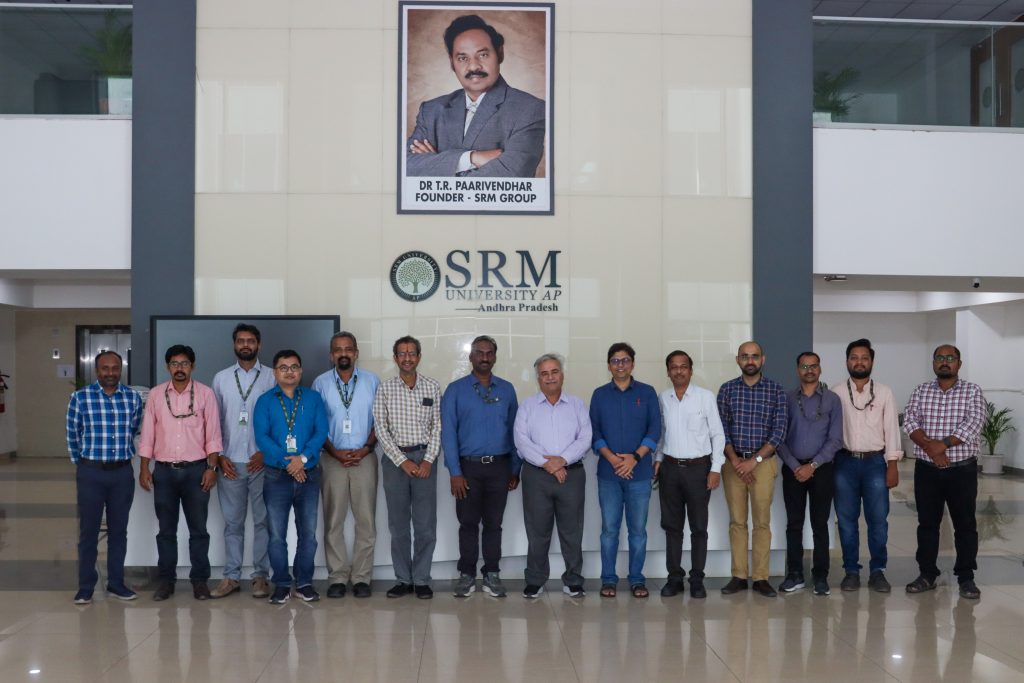
The faculty of SRM University-AP have been awarded 10 projects worth 2.50 crores from the Science and Engineering Research Board (SERB-SURE). Department of Science and Technology (DST) received a total of 2000 proposals, of which 466 were sanctioned. Among the 466 projects, 151 projects were awarded to Private Universities. Of the 151 projects approved to state private universities and colleges throughout India, the five-and-a-half-year young varsity was awarded 10 projects. 10 professors from various Science and Engineering Departments brought this incredible achievement to the university.
SERB-SURE is a research grant scheme initiated by the Science and Engineering Research Board (SERB) in India to provide financial support to young researchers in the early stages of their careers. The grants are intended to support research in basic and applied sciences, engineering, and technology and is typically granted for a period of three years.The SERB-SURE scheme is one of several initiatives by SERB to promote scientific research in India and support the development of a strong research community in the country.
“It is a milestone achievement that resonates with the University’s unparalleled commitment for excellence. We are striving towards research-intensive learning to build cutting-edge innovation for a transformative tomorrow”, commented Vice Chancellor, Prof. Manoj K Arora. The Executive Director-Research of SRM Group, Prof. Narayana Rao said that, “SRM University-AP has travailed hard to achieve the world-class scientific temperament that we now advocate, and this achievement is a testimonial recognition of all our efforts.” The prestigious grants were sanctioned to the faculty in the on-going domains of Quantum Kinetic Approach, Antimicrobial Resistance (AMR) Profiling and Changing of Hydroclimatic conditions in Bay of Bengal among 7 others.
Dean-SEAS, Prof. Ranjith Thapa said, “These research could be path-breaking and could offer a solution to many of the societal difficulties.” Prof. Jayaseelan Murugaiyan, Dr Sandeep Singh and Dr Pitchaiah Cherukuri of the Department of Biological Sciences; Dr Sabyasachi Chakrabortty, Dr V S Baswanth Oruganti of the Department of Chemistry; Dr Debabrata Pramanik, Dr Ravi Kumar and Dr Pankaj Bhalla of the Department of Physics ; Dr Sandeep Kumar Verma of the Department of Mathematics; Dr Uma Maheswar Arepalli of the Department of Civil Engineering; and Dr Kousik Das of the Department of Environmental Science and Engineering were awarded the grants.
- Published in Biology News, Chemistry-news, CIVIL NEWS, Departmental News, ENVS News, Math News, News, Physics News, Research News
Physics Graduate Secures Two International Internships
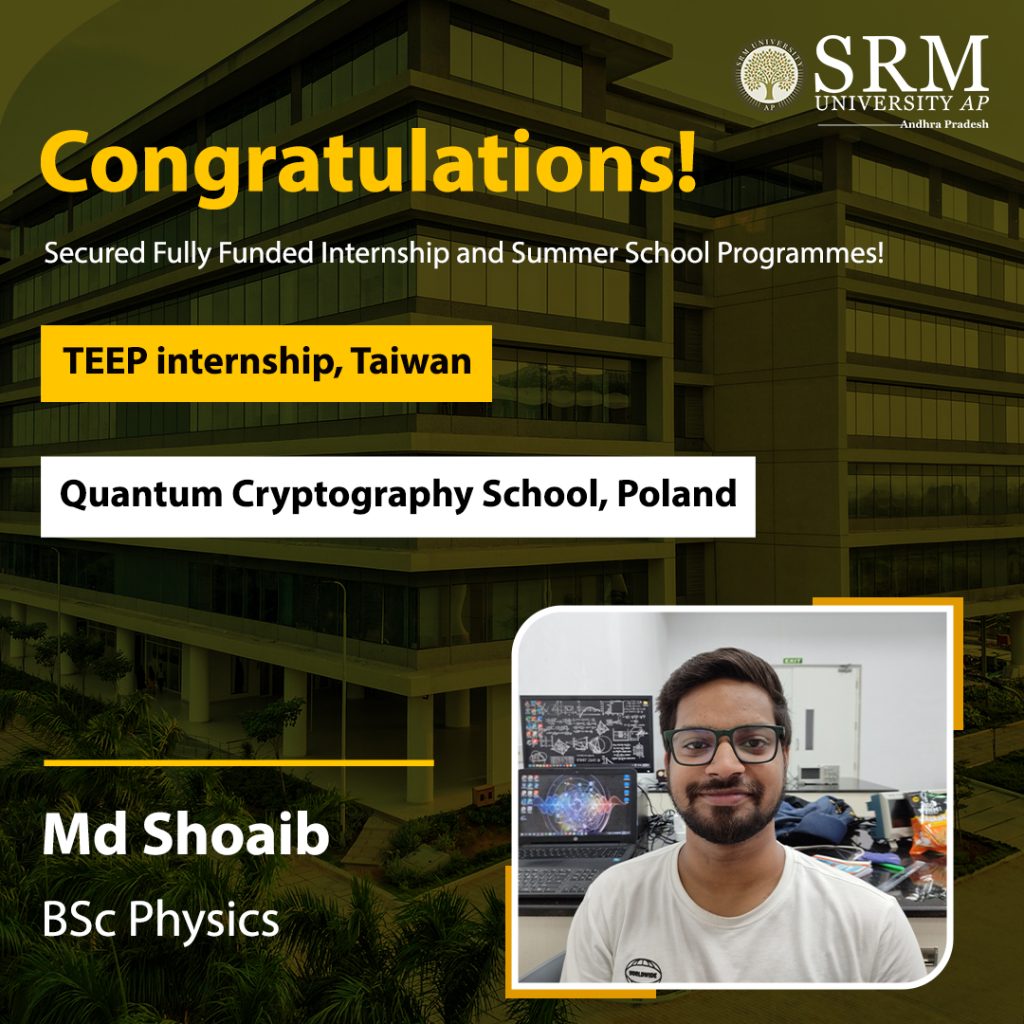
In an era where competition in the job market is on the peek, internships give you an edge over the rest of your peers. It gives you an opportunity to get real-time experience and put to practise what you have learnt. But not everyone manages to acquire an internship, while most students manage to barely secure a single internship, Md Shoaib, has bagged not one, but two exciting international internships in the field of Quantum Physics!
Here’s what Md Shoaib has to say on his remarkable achievement: “ I am excited to delve deeper into this topic and participate in enriching lectures, workshops, and interactions with experts in the field. It will be a valuable experience to learn from renowned Quantum scientists from various countries and broaden my understanding of Quantum Cryptography.”
Md Shoaib, a BSc Physics (Hons) with Research student has secured the prestigious Taiwan Experience Education Program (TEEP) internship programme along with a Summer School “Quantum Cryptography” internship offered by the University of Gdańsk, Poland. The internships not only offer a stipend but also covers travel, accommodation and logistic expenses.
We wish Md Shoaib the very best in his endeavour!
- Published in Departmental News, News, Physics News, Students Achievements


